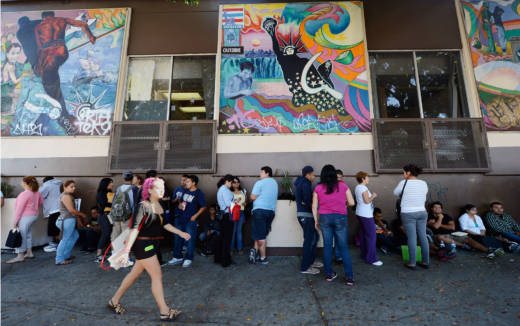Trump repeatedly called during the presidential campaign for the deportation of millions of immigrants without legal status. He recently rolled back the numbers he said he would target, concentrating instead on those with criminal records.
Still, officials in Los Angeles, Sacramento and elsewhere in California have circled the wagons, promising to protect policies that have made the state among the bluest in the country, placing it in direct opposition to Trump on several fronts.
During public discussion on the legal defense fund, supervisors heard a range of opinions on helping immigrants facing deportation.
"We are providing people with access to a process that's fair," said Supervisor Hilda Solis, who along with Supervisor Janice Hahn sponsored the legal defense funding. Supporters have pointed to studies that immigrants with legal counsel do better in deportation proceedings compared to those who do not.
Solis said the average cost of a deportation case is $5,000, suggesting about 2,000 immigrants could be helped by $10 million in funding.
Barger, who opposed the funding, said one of her concerns is that immigration is a federal issue.
"It is obvious to me and frustrating to me that the system is broken and yet at the state and local level we are trying to fix what is just merely putting a Band-Aid on the problem," she said.
The county should at least seek reimbursement for the funds it spends on immigrant legal defense, Barger said. She also said she has questions about whether people guilty of criminal offenses would benefit from the legal help.
Marvin Ruiz told the supervisors that he fled to the U.S. from Honduras because of gangs that extorted his family. He described in Spanish the difficulty he had while held in detention without a lawyer. He said he now has legal counsel.
After the vote, Trump supporter Shirley Husar criticized the supervisors' approval of taxpayer money for immigrants' legal aid.
"Everyday working people have no idea how much money just went to someone else, someone else who do not pay taxes," Husar said.
This story has been updated.
